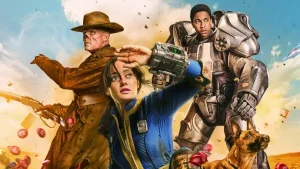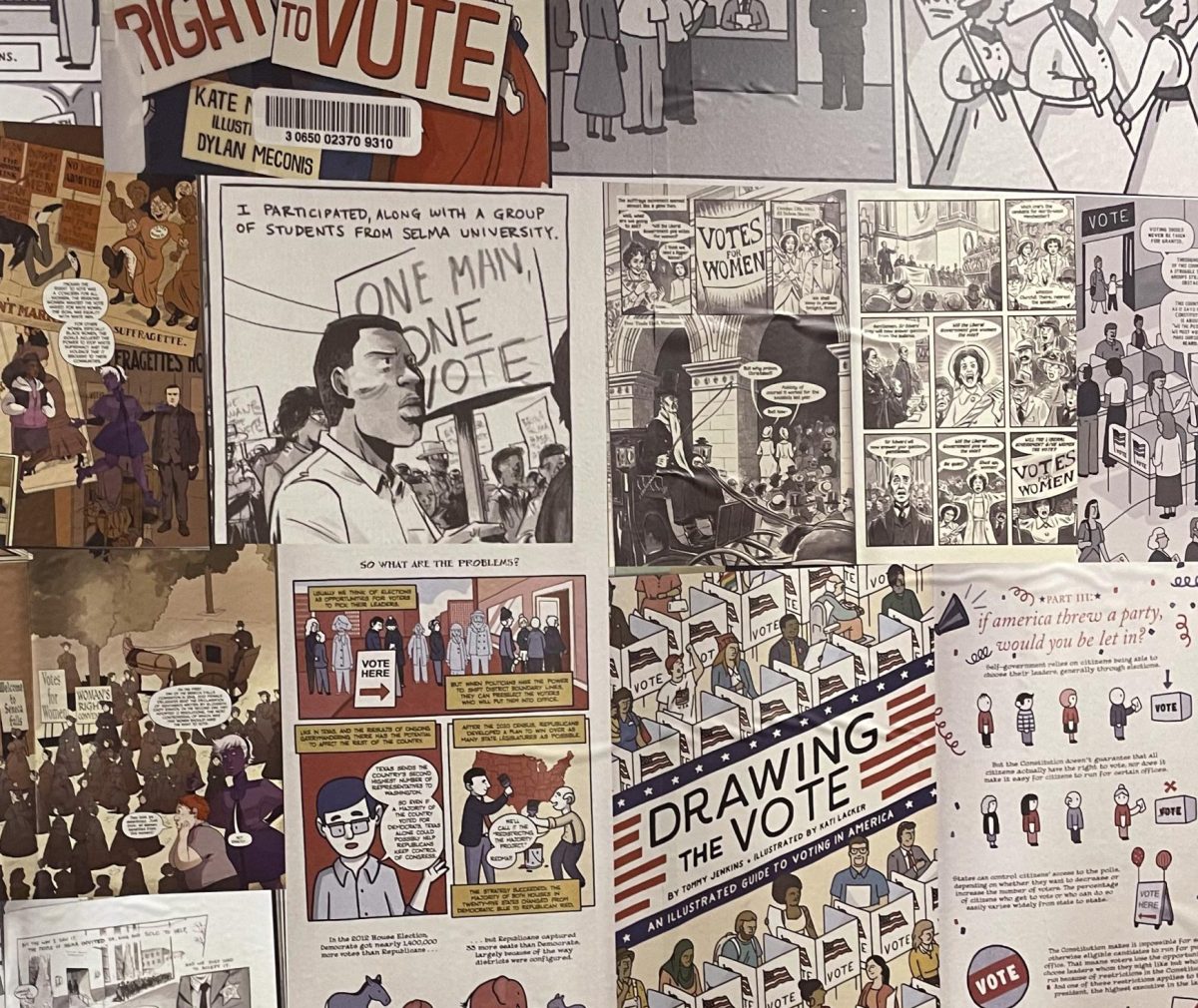An exhibit highlighting different protests for social justice in comics and graphic novels will be on display at the San Diego State University Special Collections & University Archives Gallery from March until December on the first floor of Love Library.
The Center for Comic Studies and SDSU Library collaborated to create a first-of-its-kind exhibit that’s available to be viewed by any library goers, creating an accessible collection of comic art related to social change.
The beautifully curated exhibit asks the audience to consider the different approaches to combating social issues of the past and present.
There are seven cases, each based on a different theme highlighting protest on different social issues, represented by a miniature protest sign. From racial injustice to climate change, the cases offer a mini-history of how comics have documented different protest groups “rising up” to demand change.
The themes span a wide range of topics related to social justice, showing the full spectrum of the way comics have been used to document, inspire and commentate on social protests. Each case contains different spreads from comic books with commentary on how they relate to the theme of the case, inviting visitors to engage with the greater messages of comics as an art form.
The wallpaper that backdrops this exhibit is its own piece of art, with three murals created by library graphic designer Dania Mukahhal. The wallpaper pieces beautifully combine collages of comics with stylized depictions of quotes that support the right to protest and advocate for individuals’ role in making greater change.
On March 12, at the grand opening of the exhibit, all the people who made the installation possible, including SDSU faculty, university library researchers and donors were honored. The exhibit represented a culmination of the hard work of the Center for Comic Studies, a recent addition to the College of Arts and Letters, that provides a space for comics research.
Visitors were given the chance to examine cases, admire the wallpaper and make their own mini protest signs to remain on display on the Comics Corner bookshelves.
Guests with an interest in comics were happy to have a forum to discuss the role of comics in education on a grander scale.
“I think that it’s great for people to recognize that comic books aren’t just for kids,” said Lawanda Richardson, an SDSU alum and the founder of the Black Comics Festival AfroCon. “I love the way it’s designed and the way it showcases its work. The wallpaper is amazing.”

Elizabeth Pollard, professor and founding co-director of the Center for Comic Studies, discussed her joy of being able to celebrate the opening of the “provocative” exhibit.
“The study of comics can bring transformational experiences that advocate for social justice, that imagine audacious solutions to seemingly intractable problems and that promote the idea that individuals can make a difference,” Pollard said.
The exhibit was curated by Pamela Jackson, a pop culture librarian and co-director of the Center for Comic Studies. She was excited to discuss her inspiration and process in creating the exhibit that’s been over a year in the making.
“Comics have a long history of depicting current events and challenging readers to engage with social issues,” Jackson said. “Some do so in real time, integrating contemporary struggles into the fictional universes that they create, (and) to help readers grapple with the importance of social change. Others reflect back historically on actual events that took place in our society, reminding us about past struggles for social progress.”
Some eye-catching themes for these cases include “Power to the People,” which focuses on combatting government policies. Another theme for the cases was “Hungry? Eat the Rich,” which emphasizes the fight against wealth inequality. Overall, these cases reflect many different types of social change. There are familiar faces like Superman, who can be seen protesting against climate change in “Case 7: Keep the Earth Clean. It’s Not Uranus.”
“The focus here is on social progress for human rights, dignity, equality and inclusion,” Jackson said. “My hope is that visitors will learn more about the long history of meaningful protests as a powerful way to lobby for social change and that they are also drawn to participate in broader civic action to make social change truly possible.”
Jackson’s work with Pollard as the founding member of the Center for Comics Studies has allowed her to showcase the versatility and importance of the graphic medium. One of her main goals has been to push for more comics research in higher education.
“People tend to think that comics are easy reading but they’re not if you do them properly,” Jackson said. “Because the art is complex and you can read the pictures, the shading, the colors, there’s so much reading and critical thought that goes on in it. I think higher education has been acknowledging that more as a valid line of inquiry.”
After 19 years of working with the university library, the exhibit represents a culmination of the space for comics appreciation that Jackson helped carve out at SDSU. In terms of her desired reactions to the exhibit, Jackson wants people to leave feeling inspired, knowing that social justice is possible.
“There’s always been a struggle and a fight for human rights and equality,” Jackson said. “And that a lot of those struggles and a lot of those protests have worked.”
The exhibit took her roughly eight months to curate with the idea developing more than a year ago.
Jackson faced challenges during her research as she found the spirit of social protest could not fit in all seven cases. There was so much content that Jackson created a bibliography, which included over 90 digital examples of protests in comics that can be found in a QR code on the wallpaper at the exhibit.
“It’s not always easy but a couple (of) hours here (and) a couple hours there,” Jackson said. “It works out in the end.”
While the curation of so many different comics could be daunting, Jackson was motivated by her true passion for social change in the comics medium.
“I care about social justice,” Jackson said. “It’s just something that I’ve always tried to do with my work.”
Visit the exhibit on the first floor of the Love Library in the Special Collections area by the comics corner. For more information about the Center for Comic Studies at SDSU, visit here.









